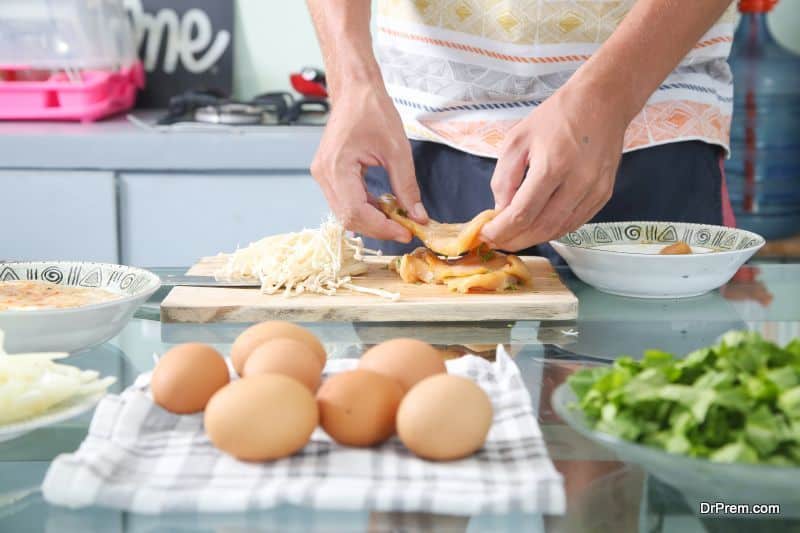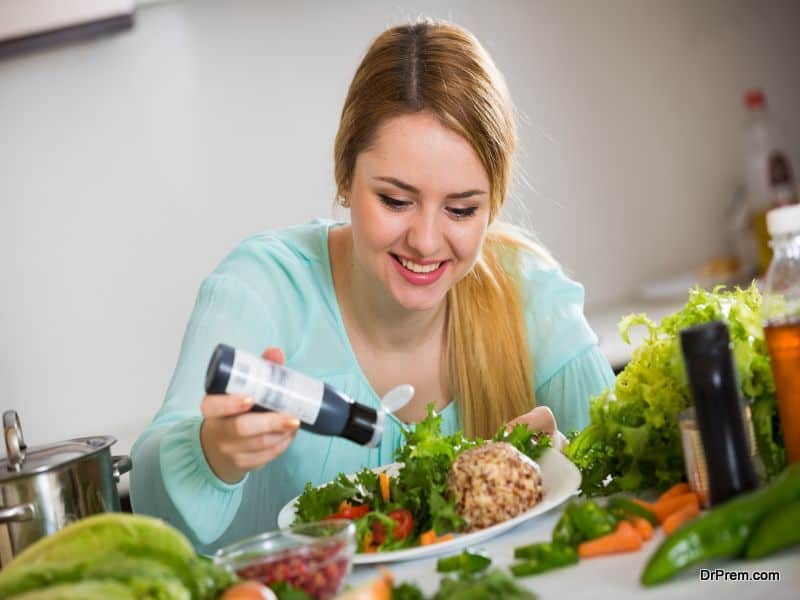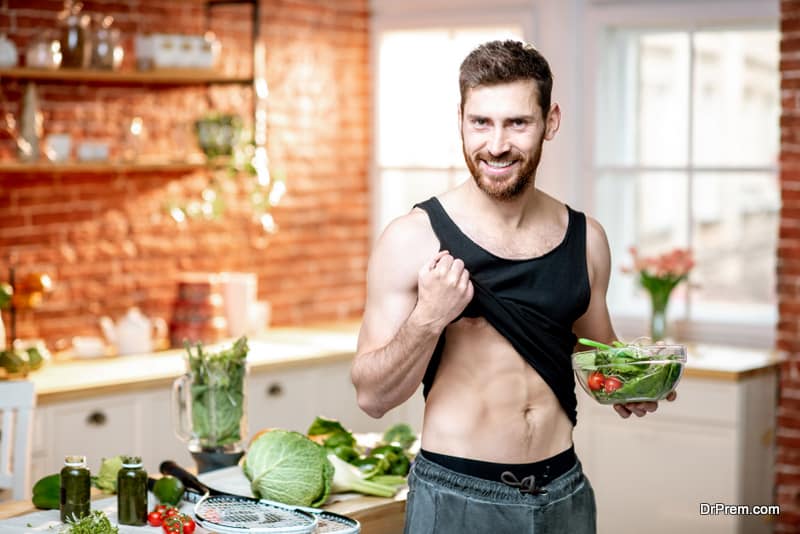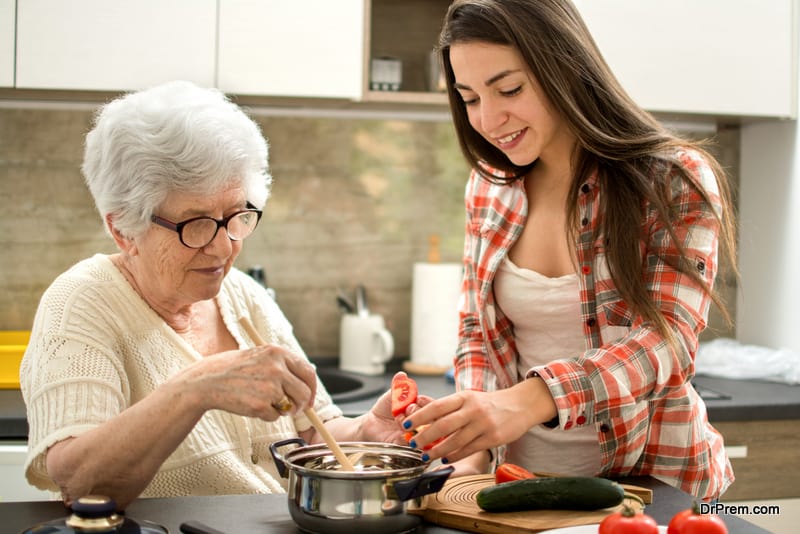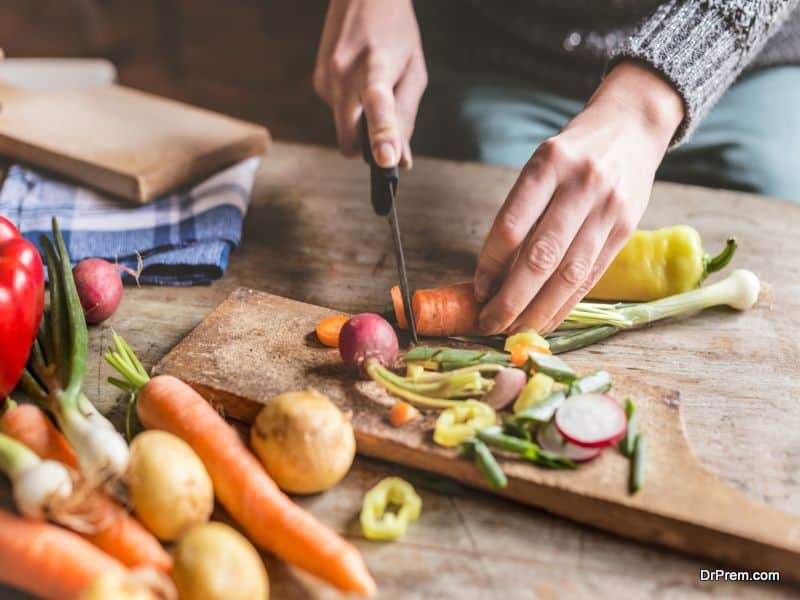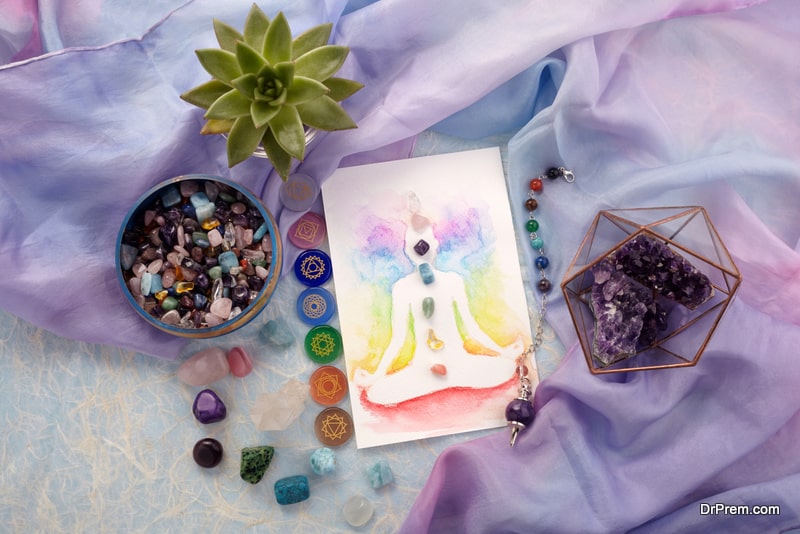Food is a great medium to connect with others and own selves. Nothing can be great if you can cook your way to wellness. 90% of Americans do not prefer cooking, a CNBC published report says. It is not only adding to their expense burden but is also costing their wellness both physical and mental.
10 Ways Cooking Therapy can boost your wellness
Cooking as a therapeutic pastime
What are the 10 ways cooking therapy boosts your wellness?
-
Good nutrition supports the link between cooking and mental health
-
Strengthens your nurturing attitude
-
Instant gratification – activating your brain’s reward center
-
Improves your self-esteem
-
Teaches you time-management
-
Brings clarity in thoughts
-
The welcome distraction
-
Teaches you to be mindful
-
Triggers fresh ideas
-
Helps in creating bonds
What if you are averse to cooking?
Scientists say cooking and baking can be a great stress buster. Therefore, you have more reasons to give up fast food and get back to cooking. According to mental health experts, cooking can help in treating anxiety, depression, eating disorders, insomnia, ADHD, autism, broken heart and other mental conditions.
Cooking as a therapeutic pastime:
There is a growing acceptance in psychology research that creativity is associated with emotional functioning. People engaged in daily creativity tasks felt flourishing in addition to being happy. They somewhat realized personal growth. Cooking activates the creative side. Many people often take to baking when they are feeling low.
In a study by the National Institute of Health (NIH) in 2018, researchers thought of exploring cooking interventions in rehabilitation and therapeutic settings. While there is little evidence linking cooking and improved mental health, study authors found it is the positive psychological outcome that could matter.
In the US, culinary therapy has been applied by several mental health professionals to combat a range of mental disorders. Some experts believe cooking-related activities like gardening, shopping and planning for cooking can be useful for some individuals affected with chronic mental disorders.
Cooking and baking may not be a sure cure for mental ailments but anyone needing to lift mood and spirits can benefit from these creative activities. To many of you, it may seem to be a mundane chore, the last thing you wish to do at the end of a hectic day. But preparing meals can keep you content and satisfied.
Why cooking is so comforting?
Whenever you are overpowered with stress, your sensory receptors get numbed. All activities included in cooking starting from chopping, washing, seasoning, frying, the sound of simmering and sizzling, the aroma, the texture of the dish all contribute to activating your senses stimulating your creative side. You feel good as the stress ebbs away slowly.
You give birth to something new:
Cooking is almost similar to giving birth as it involves a careful mixing of several things to come up with something unique. If you are cooking food for someone special, you take care of his/her tastes and distastes and make the right choice of ingredients. You follow the same while cooking for yourself. The objective is to generate the feel-good factor.
10 ways cooking therapy boosts your wellness:
-
Good nutrition supports the link between cooking and mental health
When you cook, it is easy for you to choose the right ingredients which control the quality of your diet. And who can deny the role of high-quality diet in maintaining your brain health? You choose ingredients rich in vitamins, anti-oxidants, minerals and omega-3-fatty acids that contribute to your brain and mental health.
-
Strengthens your nurturing attitude:
Caring for others, giving to others is always fulfilling. When it comes to cooking, you take care of a vital factor in life – sustenance with food. According to psychologists, cooking has an altruistic part too that is when you cook or bake for others.
It is not only the preparatory methods that make you feel good but the feeling of nurturing and caring others lifts your mood. This caring and nurturing attitude add to the taste of food that is so rewarding especially when people appreciate and enjoy it heartily.
-
Instant gratification – activating your brain’s reward center:
Very few activities give you immediate gratification as cooking does. When you taste self-cooked food and say ‘Yummy’, imagine the sense of gratification. When you see the delightful smile on your children’s face while relishing the food cooked by you, your satisfaction peaks.
-
Improves your self-esteem:
Serving good food to your family members or others fetches appreciation that raises your self-esteem. You have a precious talent to make others happy and earn recognition. This appreciation boosts your confidence which spreads in other activities as well. You feel positive as your mood is upbeat.
A study published in the Journal of Positive Psychology found cooking made people more enthusiastic in their tasks the next day. It is the feeling of self-accomplishment that adds to the zeal.
-
Teaches you time-management:
Inability to manage time adds to your daily stress. Cooking taken as therapy is great to teach you time management. Planning meals, scheduling, arranging things, planning cooking activities sequentially teach you smart time management. You can accomplish a great task within least possible time. You enhance your efficiency.
-
Brings clarity in thoughts:
Many high-profile corporate professionals irrespective of sex and creed benefit from cooking and associated activities. Be it a regular cooking activity at home or attending culinary classes with others, cooking helps in clearing minds. You are in touch with reality.
-
The welcome distraction:
Intense involvement in cooking distracts you from other stressful thoughts. An unfinished job at the office, conflict with colleagues, over-tasked brain running out of fresh ideas, undesirable events – all add to mental stress. You can at least keep away these less pleasant thoughts for some time while cooking.
-
Teaches you to be mindful:
A renowned chef to celebrities and the author of ‘Recipe for a Delicious Life’ Zipora Einav finds cooking as a comprehensive meditation exercise with the assurance of great food as a reward. According to her, while cooking, you are present at the moment. Your mind will not drift away.
You touch the vegetables, smell it, peel its skin and chop it. All these generate a particular sensation that you can feel. The sound of chopping or squeezing the juice brings momentary changes in your sensations. You taste the juice. You taste the dish to check everything is right or not. You are constantly focused on those moments. Neither you are ruminating of past events nor worrying of the future.
-
Triggers fresh ideas:
As you cook intently, you clear your brain from unproductive thoughts. You engage your senses fully while designing a cake or cookie or garnishing a dish. You exploit your creative side to the fullest to make things appear nice and attractive. As you enjoy the work, it gives way to fresh ideas.
-
Helps in creating bonds:
Cooking together in groups or community cooking is a respected tradition in many cultures especially during a festive occasion. This type of cooking helps in creating social bonding which is diminishing fast in this jet-speed lifestyle. It makes you feel accepted and helps you to remain connected with others.
What if you are averse to cooking?
Trying new things makes life interesting. Cooking is the simplest thing to try. You may not have cooked anything in your life but you can start anytime. Health is always the top priority and cooking at home is the stepping stone towards good health. Cooking becomes more pleasurable as you exercise your freedom of choice.
Be flexible in choices. More flexible you are more you will enjoy cooking. Rule of the thumb – keep your kitchen free from clutter and practice minimalism. Keep menus simple and use minimum kitchenware. You are on the track to wellness.




